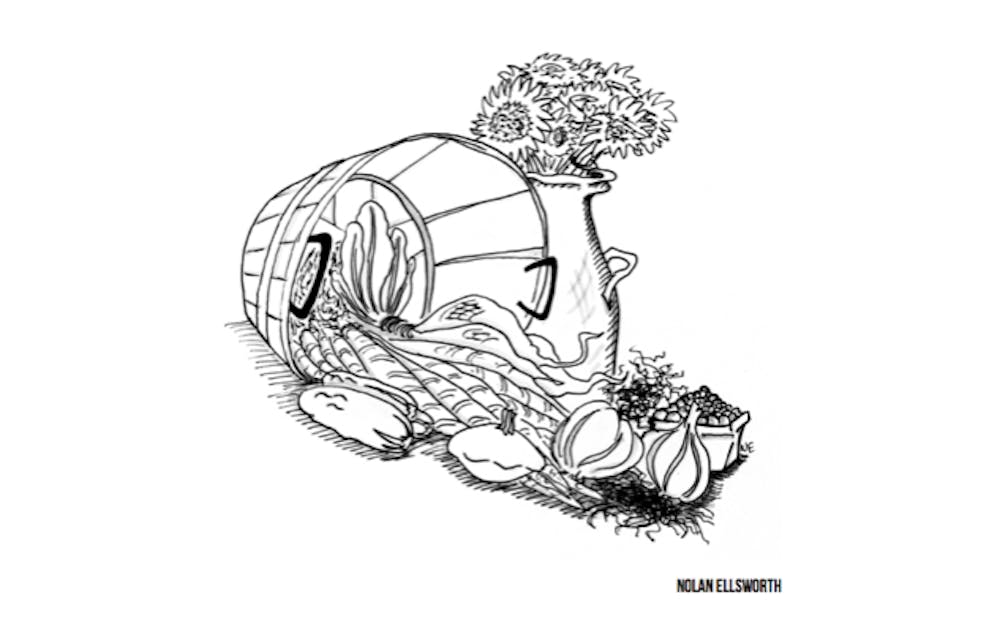My home state has been in the news a lot recently, neither for maple syrup nor for skiing, but as the face of drug use and crime in the U.S. Since the Feb. 27 New York Times article, “A Call to Arms on A Vermont Heroin Epidemic,” the rest of the country has reached the startling realization that Vermont has a drug problem. Ask anyone who’s lived in Vermont during the past decade and she can tell you that this is not news. We’ve lived with this for a long time. At the same time, Vermont hosts a thriving food system that brings life and connectivity to an otherwise struggling state.
I can see these two versions of Vermont in my hometown of Rutland. Downtown, drug deals happen regularly. People don’t make eye contact as they pass one another in the streets. Sirens race from one call to another. This isn’t the friendly, small-town Vermont of our imaginations. But everything is different on Saturday mornings. Tents pop up in the park. Trucks caked in mud haul in mountains of fresh produce. People wander from booth to booth, not hurrying to avoid attention or glaring to keep trouble at bay. They talk — to the vendors, to their neighbors and to the friends they haven’t seen in years. They ask about the weather, about family and about politics. The farmers’ market works some kind of magic on this sad little city. Suddenly, there’s a community. Suddenly, people care. Everyone there has gotten so used to keeping their heads down and minding their own business that when they finally get the chance to be engaged, they realize what they’ve been missing.
This is the power of food. It can turn a drug-laden, crime-burdened city into a hub of vibrant social and economic activity. I love going to the market. It was my gateway to real food — the kind that’s grown only ten minutes away, with no chemicals, on a little family farm where the chickens wander freely, the cows are free of hormones and I know the people who grow my food. It inspired me. I started researching food. I learned about standards of local, fair, humane and ecologically sound growing methods. I studied up on factory farming and agribusiness. I hit the books to see how food and health were related. I started to rail against GMOs at my high school and preach about food miles and carbon footprints to my family.
Here at Middlebury, these are the things that we talk about when we talk about food. We either look at things on an institutional scale, discussing how the college can make food purchasing choices that ideologically benefit its students or on a global scale, studying how purchasing local food can help reduce CO2 emissions from transportation. But somehow we seem to forget that our food doesn’t exist separately from the communities where it grows. We never talk about how hard it is for farmers to make a living and how the college could play a role in partnerships mitigating their difficulties. We never talk about the satisfaction that you get from knowing that your money has gone to someone who lives just down the road and who has grown your food with such love and care. And we never talk about the good things that are happening in Rutland. We never say that food brings people together and builds communities. And I can’t stress enough how wrong it is for us to overlook this.
Most of us here are only visitors to Vermont, so we lack an understanding of this food-based community. But I’ve seen Rutland go from the state’s heroin hotspot to a glowing community of people who share a love of food in a matter of hours. Rutland is a long way from being perfect or even okay. But it’s not the desolate place that that the media suddenly portrays it as. And for me, the way that food impacts my troubled community in a positive way is more important than any ideological, environmental or economic argument for choosing local food.
ELLEN BEVIER '14 is from Rutland, Vt. Artwork by NOLAN ELLSWORTH.




